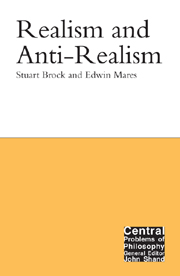4 - Idealism
from Part I
Summary
Overview
Idealism is the theory that nothing exists except minds and ideas in minds. Thus, in terms of the mind-independence axis, idealism is a paradigm form of anti-realism. There are two sorts of idealism: subjective idealism and absolute idealism. According to subjective idealism, human minds directly perceive nothing but themselves and their own ideas. The existence of other minds is inferred from one's own perceptual ideas. According to absolute idealism, everything including one's own mind is a part of a greater mind: the mind of God. The most famous subjective idealists are George Berkeley and John Stuart Mill. The best known absolute idealists are G. W. F. Hegel, F. H. Bradley, and J. M. E. McTaggart.
Idealism is sometimes thought to be akin to scepticism, but it is in fact a radical form of anti-scepticism. Idealists typically do not hold that we can know everything, but they do hold that what exists can be thoroughly understood. The view underlying both absolute idealism and subjective idealism is that the universe is (at least in principle) completely intelligible. There is nothing that cannot be comprehended. An extreme version of this thesis is held by Hegel. He says that “what is rational is actual and what is actual is rational” (1952: 10). By this he means that whatever exists can be understood and whatever we derive from intellectual considerations alone must be true. Berkeley and Bradley both hold that there is some contradiction in thinking that there are things that cannot be perceived or even things that temporarily are not perceived.
- Type
- Chapter
- Information
- Realism and Anti-Realism , pp. 48 - 59Publisher: Acumen PublishingPrint publication year: 2007

